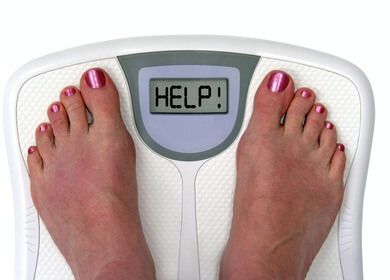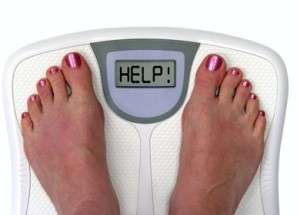
Do you have a scale in your house? If so, how many times a year, month, week, day or even hour do you step on to weigh yourself?
Some people step on the scales far too frequently, even more than once a day. If you are one of these people, you know that it becomes a sort of addiction or higher power over you that dictates what and when you eat.
Unfortunately, if you are a scale-o-holic, your morning weigh-in will either make or break your day. This can take quite a toll on both your mental and physical health.
A scale can be a useful tool if used properly, but can also be a transmitter of anxiety, stress and frustration. Although weight is a factor when attempting to get fitter and healthier, it is just one factor and should never be the over-ruling factor.
Body Composition Over Body Weight
It is critical to understand that body composition is a far more valuable assessment tool than body weight. Some people are naturally quite lean and some people have a higher body-fat percentage, which can put them at a greater risk of some adverse health conditions. Muscle weighs more than fat, so if you are toned and carry a lot of muscle, you could weigh more than someone who is flabby and at a high risk for diabetes, heart disease, stroke or any other lifestyle illness.
When Not to Weigh Yourself
Here are some tips on when it is best to avoid your scale.
Not Daily: It is not necessary to weigh yourself every day or even more than once a week. Over-weighing can lead to an obsession about the numbers.
When You Have A Cheap Scale: You may step on and off a cheap scale a dozen times within a few minutes only to have a different number pop up each time. Most domestic bathroom scales are inaccurate. Most scales at the doctor’s office and at fitness facilities will be more accurate; save a weigh-in for these places.
When You Have Eaten a Huge Dinner: It is never a good time to weigh yourself when you have consumed a large dinner. The best time to jump on the scales is first thing in the morning. Always be sure that you are weighing yourself at the same time each time you do get on the scale.
When you are not home: No matter how tempting it may be to hop on every scale you see, don’t. Keep to the most accurate scale and don’t start introducing numbers from other scales into the mix.
 When you have boots or clothes on: Clothes can add up, as well as footwear. Always weigh yourself in the nude, if possible. If you cannot weigh yourself in the nude, wear as little as possible.
When you have boots or clothes on: Clothes can add up, as well as footwear. Always weigh yourself in the nude, if possible. If you cannot weigh yourself in the nude, wear as little as possible.
After an intense workout: You can lose as much as 2 pounds during a strenuous workout. However, it is wise not to weigh yourself after such a workout; it is not going to be an inaccurate reading because you have lost fluids, not fat.
If you get tense just thinking about the scales: If knowing how much you weigh makes you tense, don’t bother. Use your clothes as a guide. If they fit fine and you are not having to buy larger pants – you are probably holding steady. If you look and feel good and are living a healthy life, there is no real need to get on the scales.
Use fitness tests, body composition tests and a tape measure to check your waist measurement if you want a more accurate assessment of the condition you are in.
How often do you weigh yourself?
-The Alternative Daily

